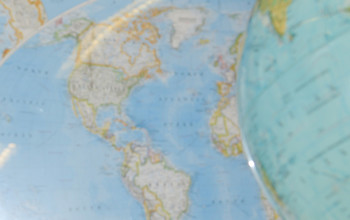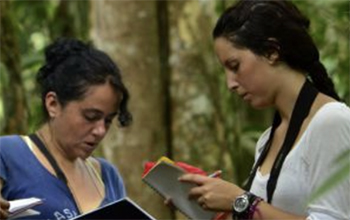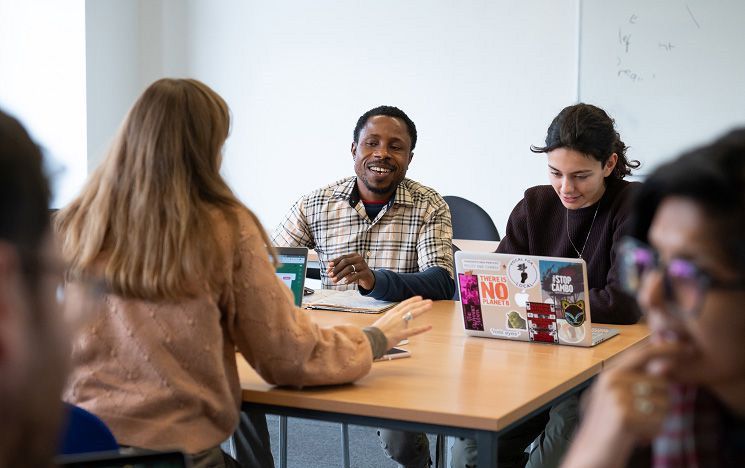Global Studies research
Learn about our research, groups and centres – cutting across different fields of study.
Our research approach
We are known for our innovative research bringing together different fields of study. This work happens in special research centers that encourage collaboration amongst you and our researchers, and experts from around the world.
We have more than 150 PhD students and post-doctoral researchers in our vibrant community.
We welcome visiting scholars, researchers, and practitioners to join us and share their expertise. Our team is always eager to share what we’ve learned.
We value working with other universities, government agencies, nonprofits, businesses, and the media to make a bigger impact. Read the Global Studies school research strategy [PDF 239KB].
Research impact case studies
View our performance in the 2021 Research Excellence Framework.
Research Excellence Framework 2021
For the next Research Excellence Framework 2029, we will build on our excellent performance in REF 2021, where we achieved the following results across three Units of Assessment:
Anthropology and Development (UoA 22) research was assessed overall as 41% ‘world leading’ (4*) and 51% ‘internationally excellent’ (3*); 92% was judged as either ‘world leading’ or ‘internationally excellent’; 66.7% of Impact was deemed 'outstanding' and the remaining 33.3% as ‘very considerable’.
Geography (UoA 14 Geography and Environmental Studies) research was assessed overall as 45% ‘world leading’ (4*) and 49% ‘internationally excellent’ (3*): 94% was in these top two levels. Regarding Impact, 83.3% was judged 'outstanding' and the rest ‘very considerable’.
International Relations (UoA 19 Politics and International Studies) was assessed overall as 44% ‘world leading’ (4*) and 47% ‘internationally excellent’ (3*), therefore 91% of our work was assessed as either ‘world leading’ or ‘internationally excellent’. 62.5% of its research environment was assessed to be ‘conducive to producing world-leading research and outstanding impact’ (4*). 100% of Impact was found to be either ‘outstanding’ or ‘very considerable’.
According to the Times Higher Education REF 2021 rankings, our Anthropology submission was ranked 7th in the country, and both Geography and International Relations ranked 13th in their respective subject areas, for the overall quality of their submissions, by GPA (grade point average). Additionally, our Geography impact was tied 3rd in these rankings, and our International Relations environment was tied in 9th place.
100% of the Impact Case Studies submitted by the School as a whole were judged 3* or 4* star – so ‘very considerable’, and in many cases ‘outstanding’.
Excellence in research in International Development is reflected in our 1st in the World ranking in the QS World rankings for the last nine years in a row.
The results of REF 2021 were published on 12 May 2022.
See all REF results and read the stories behind the research we submitted.
Centres of Excellence
The School of Global Studies hosts two world-renowned Centres of Excellence. Explore the Centres below:
Research centres and projects
There are many research centres at Sussex. The ones relating to Global Studies include:
- Centre for Advanced International Theory (CAIT)
- Centre For Global Political Economy
- Centre for Cultures of Reproduction, Technologies and Health
- Centre for Rights, Reparations, and Anti-Colonial Justice
- Sussex Asia Centre
- Climate@Sussex
- Centre for Global Health Policy
- Sussex Centre for Migration Research
- Sussex Sustainability Research Programme
- Sussex Centre for Global Insecurities Research (CGI)
- Centre for Coastal Research
- Browse some of our research projects
- YIWU: Trust, Global Traders, and Commodities in a Chinese International City
-
Strengthening pastoralist livelihoods in the greater Horn of Africa through effective anticipatory action (PASSAGE)
- Delivering food security and biodiversity conservation through rewilding and community agriculture
- Ripple Effect: advancing waterway resilience in Sussex, England
- Religion and Foreign Policy Initiative
- Roots of change: a just wilding transition for the agri-food system
- Uncertain pedagogies for youth and community resilience (follow-on project: Creating with Uncertainty. Covid recovery to educate for sustainable futures)
- Resilience in Eastern African Land – Nature based Solutions
- The Afterlives of Urban Muslim Asia: Alternative Imaginaries of Society and Polity
Explore more research
Our research network
You might also be interested in:
*Photo by Greg Rakozy on Unsplash




